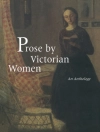This novel is a practical guide through different philosophical teachings. A reader learns them by life examples of Marius’s fictional personality, whose life sets him in other circumstances to test his changing beliefs. The story is based in Rome, where Greek philosophy and early Christianity live beside. A typical citizen could be closely familiar with Plato, Socrates, Epicurus, or Aristippus. A series of life events, the loss of a mother, studying at boarding school, disease, visiting Rome, and life at the court of Marcus Aurelius, the first acquaintance with Christianity, allows Marius to try out different philosophical teachings prove their flaws and merits. First, Marius is fascinated by epicureanism but thinks it lacks depth. Then, he is fascinated by stoicism but later sees it as too cruel. Finally, Marius comes to learn the doctrines of Christianity, which give him spiritual peace. This story could happen in Rome and is very interesting. It shows how different philosophical teachings can shape ordinary people’s real-life routines and behavior now and then.
O autorze
Walter Horatio Pater (1839 – 1894) is a British non-fiction and fiction writer, literary critic, and essayist. He is most known for his works on the art and literature of the Renaissance and his explorations of philosophy. Yet, he was most praised for his writing style and is renowned as one of the most excellent stylists in history. Many prominent writers, like H.L. Menken, Arthur Conan Doyle, Billy Collins, Somerset Maugham, Oscar Wilde, mention Pater in their works.












